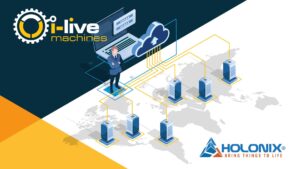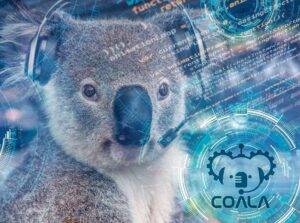An efficient organization of production, better management of resources and time, better optimization of skills and a correct division of tasks: these are just some of the advantages that the factory and workers can benefit from thanks to the adoption of tools that are able to enhance the opportunities of each production department and pave the way towards the creation of a new business strategy.

The fields of application of new technologies such asArtificial Intelligence today also embrace life in the factory and new product production and management methods. But before jumping headlong into the world of Artificial Intelligence, it is good to understand how this can help all the small and medium-sized Italian excellences, which cover the majority of the production companies in our country.
Let’s start by saying that already today manufacturing companies can touch some benefits that technologies like IoT, Cloud Computing e Big Data, predecessors of the new Industrial Artificial Intelligence, offer, starting primarily from the connection of industrial machinery to Cloud systems, capable of managing, monitoring, analyzing and returning data from the field and anticipating what could be the problems of a production system.
An example is i-Live Machines, an Augmented Intelligence software designed by Holonix, delivered in “as-a-service” (SaaS) mode, and dedicated to manufacturers of industrial machinery, already available on the market.

This is a solution that allows you to collect and analyze data from the installed machinery fleet. Thanks to i-Live Machines companies can improve the quality of the production process and reduce operational criticalities such as machine downtime or technical malfunction, which would imply maintenance in the aftermat; not only that: being usable remotely, it allows you to reset the distances and know in real time the status of your machine.
If current technologies still respond well to the needs of the sector, however, it is necessary to always take a step forward and take into account the evolution and improvements that can be made to the production system and that daily technological research brings with it.
The Coala project: the intelligent voice assistant for industry

And it is precisely from this new vision of the industrial landscape that the European Coala project (G.A. 957296) was born, of which Holonix is a partner. Coala is the acronym for COgnitive Assisted agile manufacturing for a LAbor force supported by trustworthy Artificial Intelligence and is a European research and development program that aims to create a voice “Digital Intelligent Assistant” for the manufacturing sector.
The implementation of a real human-AI collaboration will be the next step that the production companies will undertake to take; a decidedly important step so that you have the opportunity to reach an innovative scenario, aimed at simplifying the tasks of each operator who will never be replaced but, on the contrary, will be helped and supported in their daily working life, eliminating repetitive processes, decreasing stress, reducing the timing of action and finally increasing the quality of the same.
Voice assistants are often used in domestic homes which, made “intelligent”, are able to carry out trivial but at the same time demanding tasks in an autonomous manner for the man who therefore finds himself exempt from performing certain actions such as turning off the lights or turning on the washing machine.
In Coala the objectives are, as already mentioned, to propose a new style of “work” in the factory, which includes, on the operational side, the reduction of the times dedicated to the training of workers, the overcoming of psychological barriers linked to the adoption of technology and finally, the dissemination and improvement of the skills of workers in manage the opportunities that human-AI collaboration can offer.
Here Holonix, as IT Provider, inserts its i-Live Machines, with the aim of providing it with new features that are closer to the characteristics of a technology based entirely on Artificial Intelligence.
Tools like this are only the first step that every industrial reality should take to get closer and closer to the collaborative environment, in which the fear of using a new AI instrumentation leaves room for awareness regarding the importance, effectiveness and the sustainability of a new business model, in which not only production would benefit but also every human being operating within the entire production process.
Read our article also on the page of Innovation Post



